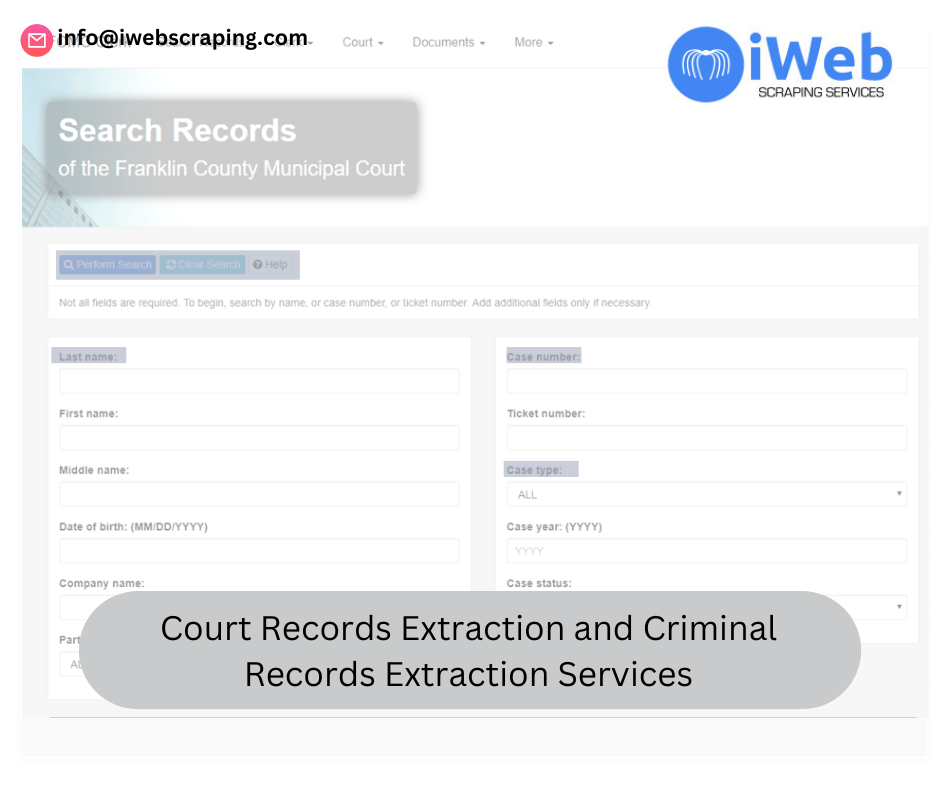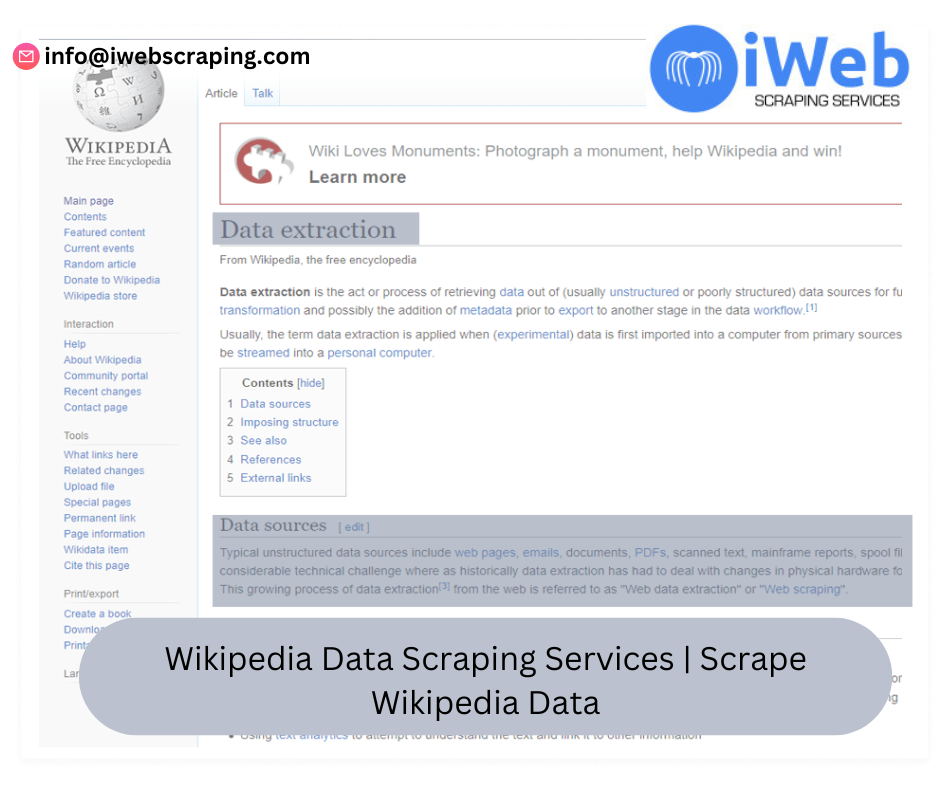
In today's digital age, data is the new gold. The ability to extract and analyze data efficiently can provide significant advantages in various fields. Among the most valuable types of data are court records and criminal records. These records are crucial for legal professionals, background check agencies, journalists, and researchers. In this blog, we'll explore the importance of court and criminal records extraction services, the methods used, and their applications.
The Importance of Court and Criminal Records
Court records and criminal records contain a wealth of information. Court records can include details about civil and criminal cases, judgments, motions, and filings, offering insights into legal proceedings, case histories, and judicial decisions. Criminal records, on the other hand, provide comprehensive information about an individual's criminal history, including arrests, charges, convictions, and incarcerations.
Accessing and analyzing these records is vital for several reasons:
Legal Research and Case Preparation: Lawyers and legal researchers rely on court records to build cases, understand precedents, and gather evidence. Comprehensive records can be the difference between winning and losing a case.
Background Checks: Employers, landlords, and financial institutions use criminal records to screen potential employees, tenants, and clients. Accurate background checks are crucial for ensuring safety and trust.
Journalistic Investigations: Investigative journalists use court and criminal records to uncover stories, verify facts, and expose misconduct. These records are often the foundation of impactful investigative reports.
Social Research: Academics and social scientists analyze court and criminal records to study trends in crime, justice, and societal behavior. This data can inform policy-making and societal reforms.
Methods of Court and Criminal Records Extraction
Extracting data from court and criminal records involves several methods, each with its own set of challenges and advantages. The primary methods include manual extraction, automated scraping, and API integration.
1. Manual Extraction
Manual extraction involves human researchers accessing and recording data from physical or digital court and criminal records. This method is time-consuming and labor-intensive but can be highly accurate, especially when dealing with complex or poorly digitized records.
Pros:
High accuracy
Ability to handle complex records
Cons:
Time-consuming
Labor-intensive
2. Automated Scraping
Automated scraping uses software tools to extract data from online databases and websites. This method is faster and more efficient than manual extraction and can handle large volumes of data. However, it requires technical expertise and can be legally complex, as some jurisdictions have strict regulations against scraping.
Pros:
Fast and efficient
Can handle large volumes of data
Cons:
Requires technical expertise
Legal and ethical considerations
3. API Integration
Many court systems and law enforcement agencies offer APIs (Application Programming Interfaces) that allow for direct access to their records. API integration enables real-time data extraction and can be highly reliable. However, not all jurisdictions provide APIs, and access may be restricted.
Pros:
Real-time data extraction
High reliability
Cons:
Limited availability
Potential access restrictions
Applications of Court and Criminal Records Extraction
The extraction of court and criminal records has a wide range of applications across various industries:
1. Legal Services
Law firms and legal professionals use extracted court records for case research, precedent analysis, and evidence gathering. This data helps in preparing legal strategies, filing motions, and understanding judicial trends.
2. Background Check Services
Companies providing background check services rely on criminal records extraction to offer comprehensive reports on individuals. These reports are essential for employers, landlords, and financial institutions to make informed decisions.
3. Investigative Journalism
Journalists and media organizations use court and criminal records to conduct in-depth investigations. Access to accurate and comprehensive records enables them to uncover stories, verify information, and hold individuals and institutions accountable.
4. Academic Research
Researchers in the fields of criminology, sociology, and law use extracted records to study crime patterns, judicial behavior, and the effectiveness of legal reforms. This data is crucial for producing research that can influence public policy and social change.
5. Compliance and Risk Management
Businesses, particularly in finance and insurance, use court and criminal records extraction to assess risks and ensure compliance with regulatory requirements. This helps in mitigating potential legal and financial liabilities.
Conclusion
Court records and criminal records extraction services play a vital role in various sectors by providing access to crucial data. Whether for legal research, background checks, investigative journalism, or academic studies, these services enable professionals to make informed decisions and drive impactful actions. As technology advances, the methods of data extraction continue to evolve, offering greater efficiency and accuracy. However, it is essential to navigate the legal and ethical considerations associated with data extraction to ensure responsible and lawful use of this valuable information.
4o

















.png)
.png)
.jpg)
Write a comment ...